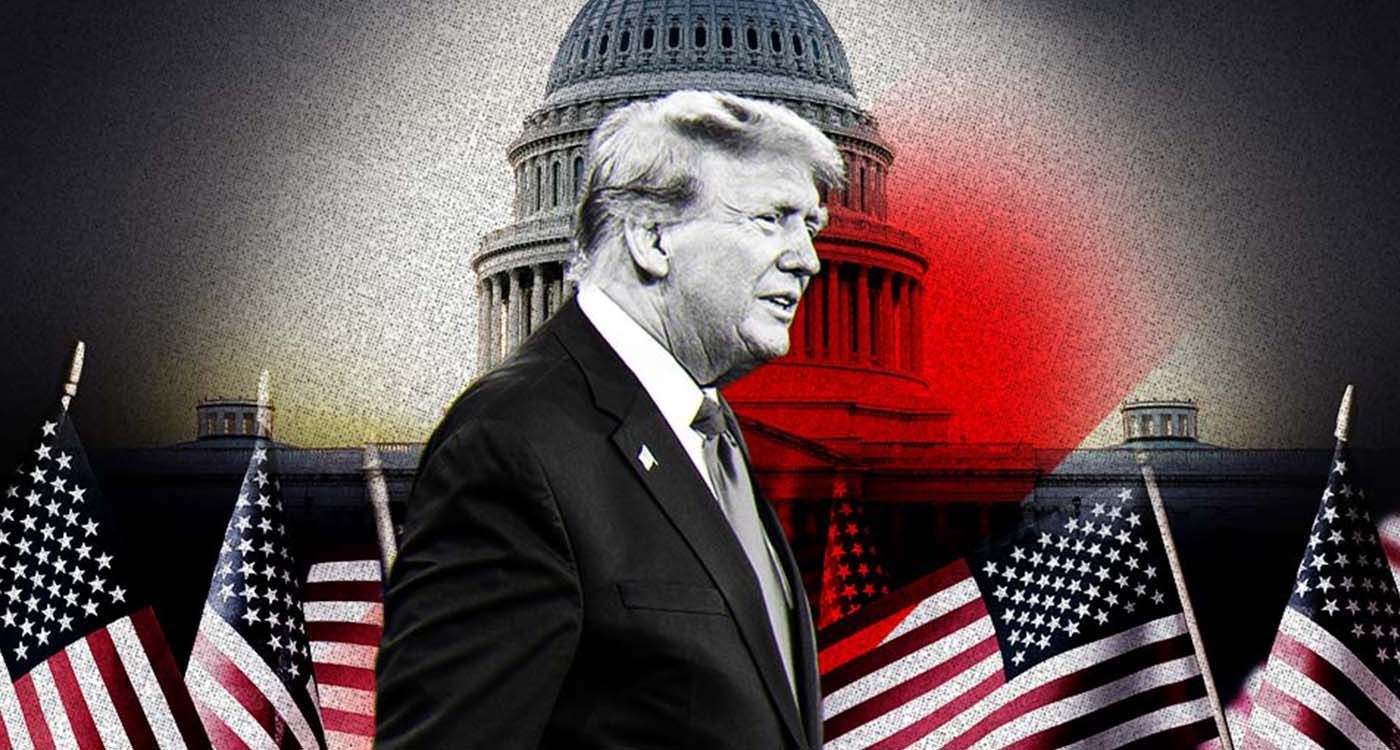- Home
- US Elections
- Why Trump Should Win the US Presidential Election

As the 2024 election draws closer, an increasing number of Americans are rallying behind former President Donald Trump’s bid to return to the White House. Trump’s strong focus on the economy and security, and his bold international policies resonate with voters who prioritize a robust America. The current administration under Joe Biden has faced multiple challenges, and many Americans see Trump as the candidate who can restore economic growth as well as national security, and bring strength to foreign policy.
The average American cares most about the economy and their safety – priorities that Trump put front and center during his previous administration. Under Trump, the US economy reached record highs, with lower taxes, job growth and a strong business environment. In contrast, under Biden, inflation soared, gas prices rose, and the cost of living became increasingly burdensome. Trump's economic policies brought growth, a low unemployment rate, and a rise in wages, giving American families confidence in their financial future.
Trump’s commitment to national security also won him considerable support. His administration emphasized border security, supported law enforcement, and took a tough stance on crime. In contrast, Biden’s administration has faced criticism for rising crime rates and border challenges, leaving many to question his ability to keep Americans safe. Trump’s stance on these issues, paired with his straightforward approach to governance, resonate with voters who feel neglected by the current administration’s approach.
One of the cornerstones of Trump’s foreign policy was his decisive approach to Iran. Trump’s administration withdrew from the Iran nuclear deal in 2018, arguing that it was flawed and enabled Iran’s nuclear ambitions. Instead, Trump enacted stringent sanctions to cripple Iran’s economy and weaken its influence. This approach limited Iran's ability to fund proxy militias in the Middle East, leading to a decrease in regional instability. Trump’s “maximum pressure” campaign aimed to force Iran into a better deal, ultimately prioritizing American and regional security.
In contrast, Biden’s administration has tried to negotiate with Iran, yet tensions remain high, and Iran’s nuclear ambitions persist. Many Americans see Trump’s strong stance on Iran as essential for maintaining stability and protecting American allies in the Middle East. Trump's willingness to confront Iran directly, rather than make concessions, reassures voters who want a tough, assertive leader.
Trump’s foreign policy successes in the Middle East extend beyond his stance on Iran. His administration brokered the Abraham Accords, creating historic peace agreements between Israel and several Arab nations. These accords fostered cooperation and stability, marking a significant achievement in US-Middle East relations. Trump’s diplomatic efforts brought tangible results, creating a more peaceful environment in the region.
In contrast, Biden’s administration has been criticized for its handling of the Israel-Palestine conflict, with many feeling his approach has been inconsistent. Trump has pledged to bring a swift end to ongoing conflicts in the Middle East, focusing on stability and America’s interests. His clear, no-nonsense foreign policy offers an alternative to the current administration’s more reserved approach, appealing to voters who value strength and straightforward solutions.
Trump’s charisma and ability to engage audiences is a major asset, evident in his recent appearance on the Joe Rogan podcast, which drew millions of views and sparked nationwide conversations. This interview showcased Trump’s ability to handle lengthy, unscripted discussions – a quality many voters value. In contrast, Kamala Harris reportedly suggested conditions for her own potential appearance on Rogan’s podcast, raising questions about her transparency and readiness to engage openly.
Harris has also faced scrutiny for her campaign’s missteps. Many remember her oversimplified comments on Ukraine’s borders or her uncomfortable public speeches. Her often scripted and stiff public appearances have led many to see her as lacking authenticity, especially when compared to Trump’s unfiltered approach. As a vice-presidential candidate, Harris’ perceived shortcomings have raised concerns among voters, casting doubt on her ability to lead effectively.
For many Americans disillusioned by Biden’s administration, Trump represents a return to decisive leadership. The Obama administration, in which Biden served as vice president, faced criticism for its foreign policy missteps, including the rise of ISIS and prolonged conflicts in the Middle East. In contrast, Trump’s foreign policy focused on putting America first, gaining the respect of foreign leaders who valued his firm stance on critical issues.
As the election draws near, Trump’s campaign is gaining momentum among Americans who prioritize a strong economy, a clear stance on security, and assertive foreign policy. With the country facing increasing challenges, Trump’s return to the White House is seen by many as a path to restore stability, prosperity and security. With a track record of resilience and decisive action, Trump has shown that he is ready to lead America again, providing the strength and direction that Americans crave.
If Trump doesn’t win the 2024 election, the divisions in America could deepen, as his supporters may feel increasingly disillusioned and marginalized. Over the past several years, a significant portion of the American population has lost faith in institutions and mainstream media, perceiving them as biased or dismissive of conservative values. A loss for Trump might reinforce this mistrust, causing his supporters to feel alienated by what they see as a government that no longer represents them. This disconnect could lead to an even sharper cultural and political divide, making compromise and unity harder to achieve. Social tensions between rural and urban areas, coastal states and the heartland, and differing political ideologies could intensify. A government perceived as catering to only one side of the political spectrum risks further fracturing the nation.
For the US to avoid an even more polarized future, leaders across the aisle will need to prioritize policies that address the needs of all Americans, encourage open dialogue, and work toward bridging the deep divides that have come to define modern America.
Read more



Comments